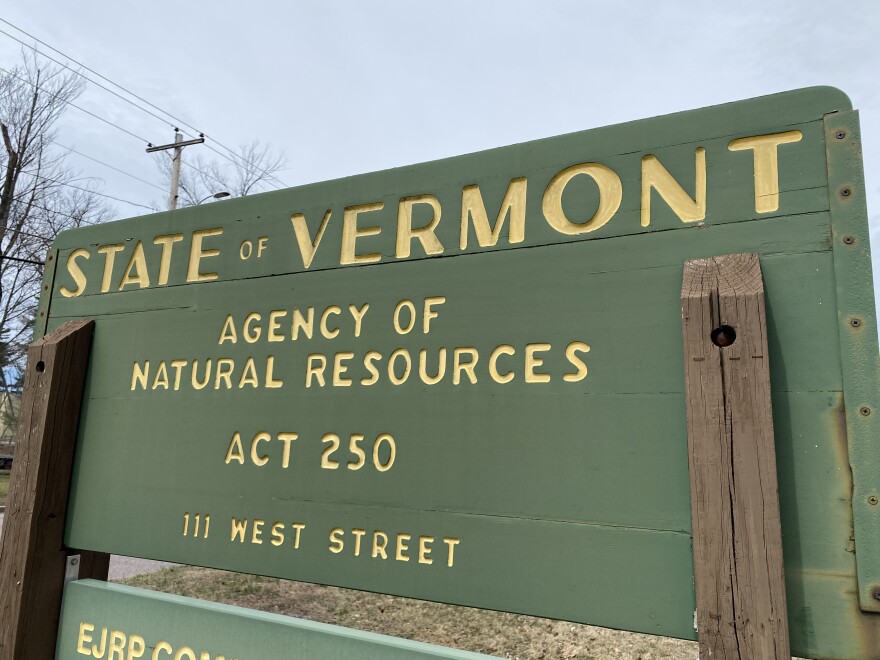Gov. Phil Scott has signed legislation that he says will ease the state’s housing shortage by “modernizing” the local and statewide land-use regulations that he’s long blamed for blocking new construction.
The bill, dubbed the “Housing Opportunities for Everyone Act” by its supporters in Montpelier, aims to quicken the pace of new housing development in Vermont by rolling back some of the permitting requirements that developers have identified as impediments to needed projects.
Under the new regime, municipalities will have to allow for at least five units per acre in areas served by local sewer and water. Towns and cities will also have to allow for duplexes in areas that are already zoned for single-family housing.
The state’s 50-year-old land-use statute, called Act 250, will also get an overhaul. Many lawmakers are particularly optimistic about a provision that will allow developers to build up to 25 units of new housing in special designated areas — within a five-mile radius and a five-year time frame — without having to go through the Act 250 review process.

Act 250 jurisdiction was previously triggered after a single developer constructed nine new units within a five-mile radius in a five-year span.
“This bill represents what we can get done when we all come to the table, work through our differences, and reach compromise to the benefit of all Vermonters, especially our most vulnerable and marginalized,” Scott said in a written release Monday. “We will continue to focus on turning the tide of this housing crisis. More important work lies ahead, but this bill is a great start.”
How the bill came together
Permit reform has been a political third rail in Vermont for decades. But an unusually bipartisan coalition of lawmakers, led by the 50-plus member Rural Caucus in the House of Representatives, forged consensus on provisions that fell by the wayside in previous legislative sessions.
“Vermonters have never been more unified in asking us to prioritize permanent, affordable housing,” Chittenden County Sen. Kesha Ram-Hinsdale said Monday. “They can be proud that we set aside our differences in Montpelier and forged an uncommon alliance to deliver historic reforms. Creating a pathway to homeownership should not be partisan, and what we accomplished put Vermont families ahead of political gridlock, so we can see smart, compassionate growth in all corners of the state.”
Lawmakers’ willingness to plow new ground on regulatory reform stemmed in part from the stories of individual developers such as Zak Hale, a property developer in Bennington who testified about the real-world impacts of what’s known as the “five-by-five-by-ten” rule in Act 250.
Hale was set to purchase a dilapidated and vacant single-family unit on Pleasant Street in Bennington and convert it into a quadriplex. Because he’d already constructed nine units within a five-mile radius of that property in the last five years, however, the Pleasant Street project would have required Act 250 approval.
“We’re not increasing the building’s footprint. We’re not increasing the number of people who can live in this building. We’re not really doing anything but just putting up a wall, adding a kitchen and a bathroom, and making it so two separate households can live in that space but separately,” Hale told Vermont Public earlier this year. “And we’re kind of running up against a wall of not being able to do that anymore because we’re going to have to start doing an Act 250 for every single one. I don’t have the capacity to do that for a small project.”

Hale was one of many developers who offered testimony as the legislation made its way through the process. And the new law will, starting July 1, allow developers such as Hale to construct up to 25 units without triggering Act 250, so long as the units are in special designated areas, such as village centers or downtowns.
The law will also eliminate Act 250 oversight for “priority” housing projects in municipalities with a population that exceeds 10,000 people.
Manchester Rep. Seth Bongartz, a Democrat who spent months negotiating consensus on the bill in advance of the 2023 session, told his colleagues last month that the bill will not solve Vermont’s housing crisis.
He said it will pave the way for more constructions in downtowns and village centers that have the infrastructure to support it.
“This is an issue that, directly or indirectly, affects all Vermonters,” Bongartz said Monday. “It is rewarding that the administration and the Legislature were able to come together, work shoulder to shoulder, and get something this important done for the people of Vermont.”
What's next?
Scott signaled Monday that he’ll be seeking more overhauls to Act 250 in 2024. Many of the provisions contained in the bill signed this week expire in 2026 — a concession to environmental watchdogs who worry they could result in overdevelopment and sprawl.
At least two studies commissioned by the Legislature on Act 250 will be in lawmakers’ hands by the beginning of the next legislative session. And Scott said they’ll lay the groundwork for future legislation.
“Given the depth of our housing crisis, we know there are more reforms needed to really turn the tide, particularly with Act 250,” Scott said. “Since I became Governor, I have pushed for needed changes, which the Legislature has yet to adopt. I will continue to pursue commonsense modernizations to make sure all Vermonters can afford a safe, decent home.”
Have questions, comments or tips? Send us a message or reach out to reporter Peter Hirschfeld:





